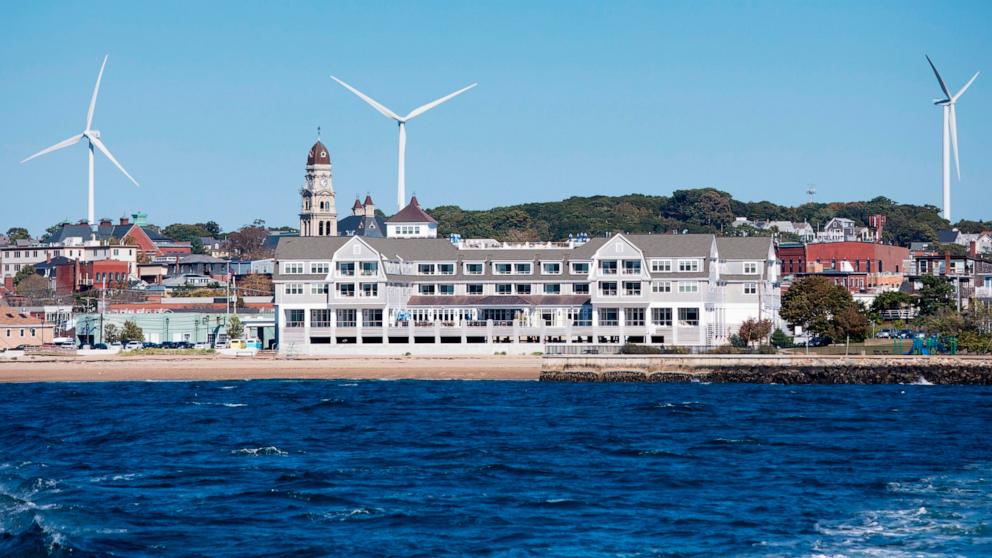As the race intensifies to find sustainability and emissions-reduction solutions around the world, Massachusetts could soon become a new leader in climate and environmental technology.
Massachusetts Governor Maura Healey's $1 billion proposal to make Massachusetts a global leader in climate technology and the emergence of environmental startups and think tanks are among the reasons the Bay State could soon emerge as the nation's climate solutions hub.
But Massachusetts experts say the infrastructure for seeing environmental initiatives through from their inception to the open market has long existed in a state that is home to some of the world's most prestigious research institutions and scientific discoveries, as well as an existing infrastructure that allows production to be achieved much faster.
Climate tech refers to any technology or any type of company working to fight climate change, from solar power, offshore wind, hydroelectric power and even the convergence and decarbonization of existing processes like construction, Massachusetts Development Secretary Yvonne Hao told ABC News.
California and New York often get most of the credit when it comes to climate solutions. Jim Matheson, a Harvard Business School professor and climate innovation expert, told ABC News that right now the race in climate tech is between Boston, New York, Texas, California, Europe and Asia.
According to environmental solutions company Powerhouse, Massachusetts currently ranks third in the nation for the number of climate tech solutions, well ahead of California with 1,607 and New York with 661.
Massachusetts is unique because it has a track record of applying what's learned in the lab to real life, Lindy von Mutius, director of the Climate Action Accelerator, an environmental solutions hub at Harvard University, told ABC News. This is especially true for life sciences innovation, which already has extensive infrastructure in place that can be applied to climate tech, von Mutius said. Sickle cell research, cellular and gene therapy work and advances on Moderna's COVID-19 vaccine all came from Massachusetts, Hao said.
“I think we're in a really great position where we're already demonstrating leadership in one area: technology, innovation and cutting-edge funding for that innovation,” von Mutius said.
Matheson said successful technology ventures require what he calls the “triangle of capital”: intellectual capital (Massachusetts is home to universities such as Harvard, MIT and the University of Massachusetts Amherst), human capital (the individuals who run the companies) and financial capital (the money needed to launch a startup).
Matheson said the ideas and entrepreneurial spirit coming out of universities and research labs in Boston, Cambridge and the New England region are being combined with financial capital to support companies from their early stages through to the public markets.
“The modern venture capital industry began in Boston,” he said, adding that its proximity to New York and Washington, D.C., creates even more investment and entrepreneurial opportunities.
The biggest difference between Silicon Valley and Boston, Matheson said, is that Boston has the ability to produce “real physical things” rather than software. Solutions to climate change require longer cycles rather than the boom and bust of big tech companies.
Hao said Governor Healey is “very competitive,” which helps his ambitious climate action. He told ABC News that Governor Healey's $1 billion proposal aims to spur economic growth around climate change technology by using success stories from life sciences as a template and applying them to climate change innovation.
Hao said the proposal includes “multiple-fold” investment returns, tax incentives, job creation at a “competitive scale” and an operating budget for the clean energy center, which would ensure the installation of EV charging stations and the adoption of green electricity in the future.
“We want to be excellent and we want to solve big, hard problems that matter to the world,” Hao said.
A startup called Boston Metal is making carbon-free steel, as traditional steel production methods are highly harmful to the environment and are one of the largest contributors to greenhouse gas emissions from the construction industry.
SparkCharge, also based in Boston, is a startup that built the world's first mobile EV charging network, and the idea was born out of a shortage of charging stations across the US, SparkCharge founder Joshua Aviv told ABC News.
Since its founding in 2018, Spark Charge has been developing fast chargers that can power electric vehicles without connecting to the power grid, Aviv said.
SparkCharge is the brainchild of Somerville, Massachusetts-based Greentown Labs, the nation's largest climate tech incubator, Giulia Travaglini, senior vice president of marketing and communications at Greentown Labs, told ABC News.
Travaglini said Greentown Labs was founded in 2011 as one of four startups within the MIT ecosystem, making Massachusetts a natural home for the company.
“Massachusetts has over 80 different academic institutions across the state,” she said, “so we’re kind of the nexus and the melting pot where all the pieces that we need to revitalize the climate community come together.”
Highlighting the economic potential of climate technology will be a major focus of Boston's first-ever climate conference, ClimaTech, taking place Monday through Wednesday.
“We wanted to bring together people who are focused on the real innovation and technology and economic growth aspects around startups,” Hao said. “How do we solve these big, hard problems in climate tech while also growing startups, growing jobs, and actually creating accelerated economic growth out of that?”
Experts have said global warming is the most existential crisis of our time, and Matheson said the race between world leaders in innovation was likely to lead to more impactful outcomes.
“If competition between states encourages more people to take action on climate change, that's a great thing,” von Mutius said.


